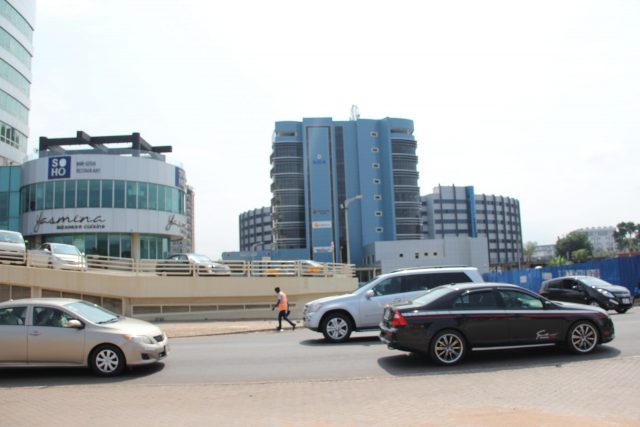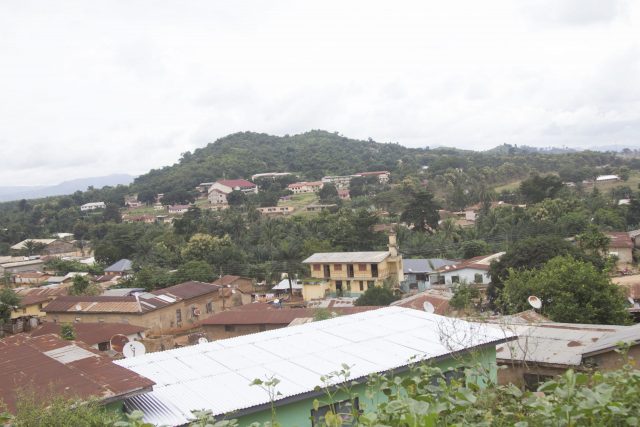Let face it these days; it has become increasingly exhausting to be Black in America. You can’t turn on the news today without having to deal with the story of yet another case of racial profiling, Police brutality, or killing of an African American. From the broad day execution of Geroge Floyd to the murder of Atatiana Jefferson, Breonna Taylor, and others going about their daily lives and doing everyday mundane things, including being in what should be the safest place, their own homes. It is not hyperbolic to say the community seems to be under attack.
A recent census survey cited by the Washington Post suggests a considerable increase in the number of African Americans showing signs of anxiety and depression. As a black person in America today, it might sometimes be a good idea to take a break outside the country and give yourself some psychic relief. One way to do this is to consider finding a second home outside America. Preferably a place where the color of your skin does not have any bearing on your daily existence.
Ghana slave trade history
We all know how African Americans ended here in America. Millions of Africans were taken from Ghana and other parts of the African continent 400 years ago to work as slaves. Remanence of the over forty castles and forts constructed to facilitate the slave trade still stands across Ghana. The most popular being Cape Coast Castle, now a museum dedicated to educating visitors about this dark chapter in human history. This devastating trade left thousands of Africans, including many Ghanaians and their descendants, displaced and unaware of their cultural heritage.
Many young African Americans feel lost and have very little information about their ancestors’ cultural heritage or history. Their only reference to a place like Ghana on the African continent is that it is famous worldwide for its poverty, slave castles, and beautiful beaches, but there’s a lot more to discover in Ghana. A lovely destination on Africa’s west coast, a vibrant modern society, peaceful, not to mention the warm climate.
The year of the return
The Ghanaian government is actively courting African descendants in the diaspora and encouraging them to regard Ghana as their ancestral country and return home. In 2019 the “Year of Return” initiative was created by Ghana’s president in the USA to mark the 400th anniversary of enslaved people’s arrival to America.

African Americans were encouraged to visit Ghana, find out more about the country’s history and culture. The “Year of Return” celebrations include a vibrant music festival dabbed Afrochella exciting historical tours, parties, and festivals organized throughout the year. Various annual tribal festivals such as the Homowo and Abioakyeri festivals across the country add to the cultural experience. Ghana has also become more accessible to travelers, and it’s projected that the number of tourists’ visiting Ghana will increase from one to eight million by 2027.
Beyond the year of the return
Beyond the return is a new government initiative that encourages African Americans and other African descendants to become more involved with local communities in Ghana. This initiative encourages people who have previously visited the country to come back and to invest financially and socially.
Many returned African Americans choose to make Ghana their second home and buy housing or land in the country. Others have begun to establish strong links with the local communities across the country. These links can benefit everyone; African Americans bring knowledge and expertise in many fields to help develop these communities while building cooperations that create lasting relationships with the local towns and the people.

The benefits of establishing a connection with communities in Ghana
Besides psychological relief, there are many other reasons why Ghana is a fine place to make your second home. First of all, the official language spoken is English, so no language barrier challenges. The country has a stable democracy that allows dual citizenship, and many African Americans who have visited Ghana rate it as a positive experience.
While taking a break to regroup, African American entrepreneurs can use the time in Ghana to explore the immense business opportunities in many sectors, including hospitality and tourism, agriculture, entertainment, health care, and manufacturing.
The sentiment by a young college student from Maryland who visited the country last year sums it all. “It is a great feeling to walk down the street and not worry that a so-called Karen will cower behind her door and call the police because your mere presence makes her uncomfortable.” Recent estimates suggest that around 3,000 African-Americans have decided to make Ghana their home and have permanently moved to the country.

In recent years increasing numbers of African Americans, including celebrities, continues to visit Ghana and other African countries. Many of them have established strong community links with Ghanaians, who have welcomed them with open arms. Before visiting, many African Americans had a stereotypical African image, synonymous with poverty and war. Because of these bad images of Africa, portrayed mostly in the media, many African Americans feel discouraged from visiting Africa. African Americans who have returned to Africa to visit or live have had the chance to tour Ghana’s beautiful landscapes and visit spectacular historical sites where they discovered more about the place.
Visiting Ghana
The cost of travel and time constraints are the main reasons many African Americans never visit Ghana or Africa. However, these days one can get a direct round trip flight under $1000 if they shop around. For some traveling to a so-called third-world country like Ghana can sound daunting, but it can be straightforward if you follow some necessary steps. Because the country has a tropical climate, it has only two seasons. They are the wet and dry seasons. Characterized by heavy rainfalls, the wet season starts around March and ends around mid-November.
You first need a valid passport, so get one or dust off your old if you have not used it for a while. You will also need to obtain a travel visa. More information on the entry requirement is available from any of the following Ghanaian consulate websites.
Ways to connect with communities in Ghana
While you have to weary of scammers because it is very prevalent, the internet has a wealth of information about making connections to the motherland. Through the Ghanaian towns page, you can find information about various local communities ready and eager to reconnect with their fellow brothers and sister seeking a connection to their heritage, ancestry, history, and a second home they can retreat for psychic relief.



















